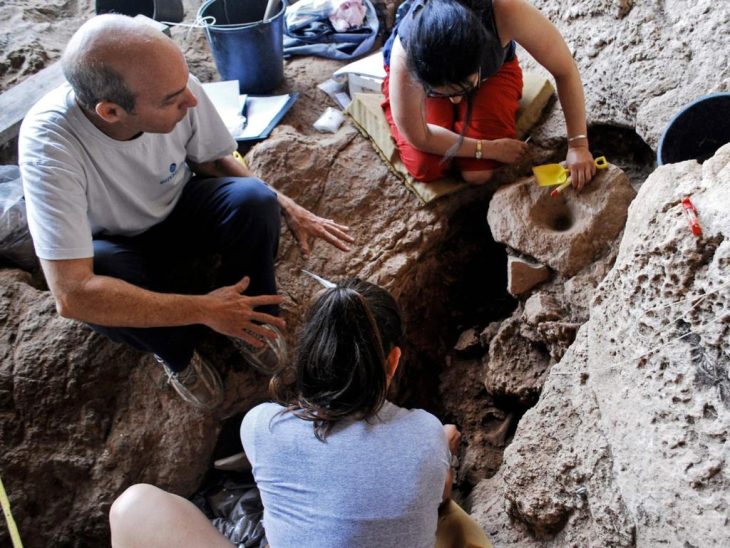
Word of the Day: Quiddity
Today’s Word of the Day is quiddity, a word that means “the quality that makes a thing what it is; the essential nature of a thing; a trifling nicety of subtle distinction, as in argument” (https://www.dictionary.com/browse/quiddity). The word comes into English from Latin, particularly from the Latin arguments of medieval philosophers. Here is what etymonline.com says:
“a trifling nicety in argument, a quibble,” 1530s, from Medieval Latin quidditas “the essence of things,” in Scholastic philosophy, “that which distinguishes a thing from other things,” literally “whatness,” from Latin quid “what,” neuter of indefinite pronoun quis “somebody, someone or other” (from PIE root *kwo-, stem of relative and interrogative pronouns). The sense developed from scholastic disputes over the nature of things. Original classical meaning “real essence or nature of a thing, that which distinguishes a thing from other things and makes it what it is” is attested in English from late 14c. (quidite).
It is interesting (at least to me) that what probably seemed like an essential philosophical question, “what is the true essence of” this or that, comes to mean something that is trivial.
On this date in 1487, according to On This Day, Albert IV, Duke of Bavaria promulgated the first Reinheitsgebot (or German Beer Purity Law), stating that beer should be brewed from only three ingredients. It seems that Albert had determined that water, malt and hops were the essence of beer. Of course, just 30 years later the German Beer Purity Law changed the ingredients to water, hops, and barley.
The history of beer is very long and seems to be getting longer. One account dates beer back to around 3500 BC. Archaeologists “found a beerstone jug in Godin Tepe, [R] in the central Zagros Mountains of Iran, in 1992” (https://homebrewacademy.com/history-of-beer/), which is kind of ironic given that it is currently illegal to produce, sell, possess, or consume any kind of alcohol in Iran.
But more recently, in 2018, archaeologists from Stanford University, discovered evidence of beer brewing in “the Raqefet Cave, a Natufian graveyard site located near what is now Haifa, Israel” (https://news.stanford.edu/press-releases/2018/09/12/crafting-beer-lereal-cultivation/). According to Li Liu, professor of Chinese Archaeology, “This discovery indicates that making alcohol was not necessarily a result of agricultural surplus production, but it was developed for ritual purposes and spiritual needs, at least to some extent, prior to agriculture.” In other words, instead of beer following the development of agriculture and the making of bread, it may be that beer came first, followed by raising grains and turning those grains into bread.
The old adage is that beer is liquid bread, but perhaps the historical truth is the bread is solid, non-alcoholic beer.
According to the Stanford researchers, the beer produced by the Natufians could have been made from barley or wheat. That’s right, wheat. Then again, today we have, apparently, ignored the Reinheitsgebot because we have all kinds of beers, including wheat beer, coffee-flavored beer, fruit-flavored beer, Gueuze and Kriek-Lambic beers (which contain cherries), Italian grape ales, and even oyster stouts.
Whatever kind of beer you might drink (including O’Doul’s), it should be interesting that beer is important in human history:
“Beer is the basis of modern static civilization,” [said Charlie] began Bamforth, Anheuser-Busch Endowed Professor of Brewing Science at the University of California, Davis. “Because before beer was discovered, people used to wander around and follow goats from place to place. And then they realized that this grain [barley] could be grown and sprouted and made into a bread and crumbled and converted into a liquid which gave a nice, warm, cozy feeling. So gone were the days that they followed goats around. They stayed put while the grain grew and while the beer was brewed. And they made villages out of their tents. And those villages became towns, and those towns became cities.” (https://www.scientificamerican.com/article/ales-well-with-the-world/)
Many people do not drink beer. Some people even think drinking beer is a sin. But if so, it is sin that people have indulged in for 7,000 years.
Of course, there are probably some people who would argue that all of the varied ingredients modern brewers put into beer today are just wrong, that beer should just be beer, but to me that is nothing but a quiddity.
The image today: Archaeologists from Haifa University at an excavation in a cave near Raqefet searching for evidence of beer brewing in a Natufian burial cave dating back 13,000 years ago. Credit: AFP.